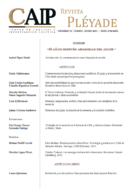Fascist Counterrevolution and Neoliberal Democracy Chilean Coup d’état and Transition on a Polanyian Perspective

Published 2013-07-21
Keywords
- military dictatorship,
- Chile,
- fascism,
- neoliberalism,
- democracy
- Karl Polanyi ...More
How to Cite

This work is licensed under a Creative Commons Attribution-NonCommercial 4.0 International License.
Abstract
Can the coup d’état in Chile 1973 be catalogued as a fascist episode? Which role does the neoliberal doctrine implemented by the Chicago Boys play within it? Using the theoretical framework offered by Karl Polanyi, it will be argued that the Chilean military government shares some of the main elements of what the author calls a “fascist counterrevolution”. The coup d’état was a totalitarian response to the real contradiction between democratic politics and the market economy, i.e. an attempt to completely eliminate democracy in order to “save” capitalism through an authoritarian state. The military regime aims to achieve total control of the citizens by first using “terror” as a mean to promote fear, second, through a strategy to “pacify” the people. For this goal, different tactics –known from passed fascist episodes– were used. On the one hand, the importance of the “totality” as against individuality was proclaimed. On the other hand, the principle of “vitalism” was applied: the absolute use of the senses as means of avoiding rational thought. This was the role assumed by the neoliberal doctrine of Chicago, which proclaimed the subordination of politics to the “reality of the market” and promoted an unlimited consumption.